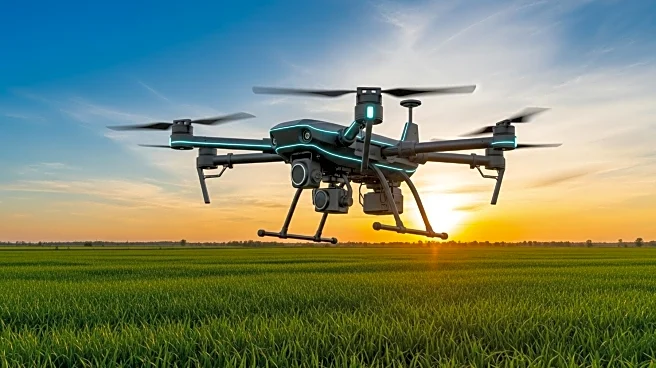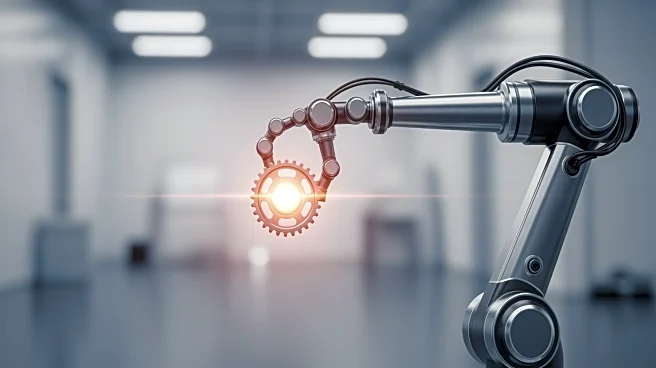What is the story about?
What's Happening?
Machine learning (ML) and artificial intelligence (AI) are transforming agricultural practices by improving harvest forecasting, yield prediction, and pest management. These technologies utilize data from satellite imagery, soil conditions, and weather patterns to provide more accurate predictions. The integration of ML models such as CNNs, LSTMs, and ensemble methods has shown significant improvements in forecasting capabilities. These advancements allow farmers to make informed decisions regarding planting, fertilization, and harvesting, potentially increasing efficiency and reducing losses. However, challenges remain, including data quality, transferability, and accessibility for small-scale farmers.
Why It's Important?
The application of AI in agriculture is crucial for enhancing food security and optimizing resource use. By providing precise forecasts, AI can help farmers maximize yields and minimize waste, which is essential in the face of climate change and growing global food demand. The technology also aids in predicting pest and disease outbreaks, allowing for timely interventions that can prevent crop losses. While large-scale farms may benefit significantly, there is a need to ensure that smallholder farmers can access and utilize these technologies effectively. The development of explainable AI and smallholder-friendly tools is vital for equitable benefits across the agricultural sector.
What's Next?
Future directions in AI-driven agriculture include the development of more explainable AI models and tools that are accessible to smallholder farmers. Efforts are underway to improve data quality and spatial resolution, which are critical for accurate forecasting. Additionally, ongoing research aims to enhance climate resilience through better prediction models. Stakeholders, including governments and agribusinesses, are likely to invest in these technologies to support sustainable agricultural practices and ensure food security.
Beyond the Headlines
The ethical implications of AI in agriculture involve ensuring fair access to technology and addressing data privacy concerns. As AI becomes more integrated into farming practices, there is a need for policies that protect small farmers and promote transparency in data usage. Long-term shifts may include changes in labor dynamics, as automation reduces the need for manual labor, potentially impacting rural communities.
















